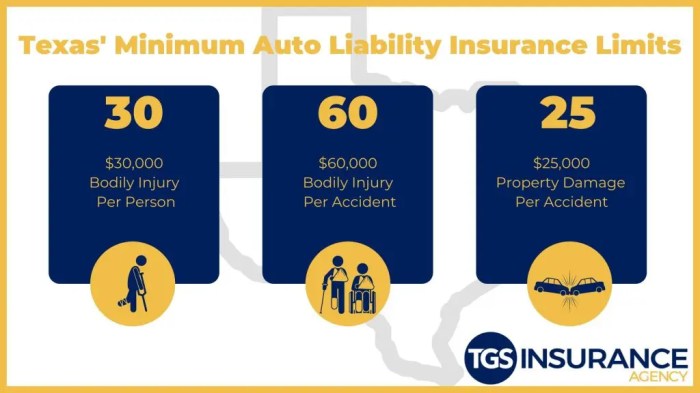State of Texas Car Insurance – The car insurance landscape in Texas is both dynamic and multifaceted. As one of the largest states in the U.S., with diverse regions and populations, Texas presents a unique set of challenges and opportunities for drivers looking to secure car insurance. Whether you’re a new driver in Texas or someone looking to switch providers, it’s essential to understand the factors that influence car insurance rates, coverage options, and claims processes in the Lone Star State. This comprehensive guide aims to provide detailed insights into Texas car insurance, helping you navigate the complexities of the market and make well-informed decisions.
Table of Contents
ToggleWhy Texas Car Insurance is Important
In Texas, car insurance isn’t just a good idea—it’s mandatory. The state requires drivers to carry minimum levels of liability insurance to ensure financial responsibility in the event of accidents. Failure to carry adequate insurance can result in penalties, fines, or even the suspension of your driver’s license. Beyond legal requirements, having the right car insurance provides peace of mind, ensuring that you and others are protected from the financial burden of accidents, damages, and injuries.
Texas Car Insurance Market Overview
Texas is home to one of the largest car insurance markets in the United States, with millions of insured drivers. According to data from the Texas Department of Insurance, the state boasts more than 20 million registered vehicles. As such, billions of dollars in premiums are collected annually by insurance companies operating in the state.

The Texas car insurance market is primarily dominated by a few key players, including:
- State Farm
- Progressive
- Geico
- Allstate
- USAA (popular among military members and their families)
These companies control a significant share of the market, but there are also numerous smaller and regional insurers that provide competitive rates and personalized service to Texas drivers.
Factors Influencing Car Insurance Rates in Texas
Several factors come into play when determining car insurance rates in Texas. It’s crucial to understand these influences so you can make adjustments where possible and secure better premiums. The most common factors include:
1. Driving History
Your driving record is one of the most significant factors affecting your insurance rate. Drivers with clean records—those with no accidents, traffic violations, or claims—generally pay lower premiums. On the other hand, drivers with at-fault accidents, speeding tickets, or DUIs can expect significantly higher rates.
2. Age
Age is another influential factor in car insurance pricing. Younger drivers, particularly those under 25, typically face higher premiums as they are statistically more likely to be involved in accidents. Older drivers, especially those over 65, may also see an increase in rates due to potential age-related risks, such as slower reaction times.
3. Location
Where you live in Texas plays a major role in determining your car insurance premium. Urban areas such as Houston, Dallas, San Antonio, and Austin generally have higher rates due to the increased likelihood of accidents, theft, and vandalism. Conversely, rural areas tend to have lower premiums because of fewer vehicles on the road and a reduced risk of theft or accidents.
4. Type of Vehicle
The make, model, and year of your vehicle also impact insurance rates. High-performance sports cars and luxury vehicles are more expensive to insure because they are more costly to repair and are considered higher risks for theft. On the other hand, sedans, economy cars, and vehicles equipped with advanced safety features may qualify for lower premiums.
5. Credit Score
In Texas, insurers are allowed to use your credit score to determine insurance rates. Studies have shown a correlation between lower credit scores and higher claims, so drivers with poor credit may face higher premiums. Maintaining a good credit score can help you qualify for lower rates.
Coverage Options and Requirements in Texas
Texas law mandates that all drivers carry a minimum amount of liability insurance. This coverage helps pay for the other driver’s medical expenses and property damage if you’re found at fault in an accident. The required minimums are known as 30/60/25 coverage, which stands for:
- $30,000 for bodily injury liability per person
- $60,000 for bodily injury liability per accident
- $25,000 for property damage liability
While this is the minimum coverage required by law, many drivers opt for additional coverage to better protect themselves. Here are some of the most common additional coverage options available in Texas:
1. Collision Coverage
Collision insurance helps cover the cost of repairing or replacing your vehicle if you’re involved in an accident, regardless of who is at fault.
2. Comprehensive Coverage
Comprehensive coverage pays for damage to your vehicle caused by non-collision events, such as theft, vandalism, fire, or natural disasters. Given the unpredictable weather in Texas, including hailstorms and flooding, comprehensive coverage can be an essential safeguard.
3. Uninsured/Underinsured Motorist Coverage
Although Texas law requires all drivers to carry insurance, many drivers either don’t have coverage or don’t have enough. Uninsured/underinsured motorist coverage helps protect you if you’re hit by a driver who lacks sufficient insurance to cover your expenses.
4. Personal Injury Protection (PIP)
PIP coverage helps pay for medical expenses, lost wages, and other related costs for you and your passengers, regardless of who is at fault in the accident.
5. Non-Owner Car Insurance
For those who don’t own a vehicle but occasionally borrow or rent cars, non-owner car insurance provides coverage. This ensures that you meet Texas’s insurance requirements even if you don’t own a car, offering protection in the event of an accident.
Shopping for Car Insurance in Texas
When shopping for car insurance in Texas, there are several avenues available to help you find the best rates and coverage. Here are a few tips:
1. Compare Quotes
One of the most effective ways to find a good deal on car insurance is to compare quotes from multiple providers. Many websites offer free tools that allow you to input your information and receive quotes from several insurers. Be sure to compare not just the premiums but also the coverage limits, deductibles, and any discounts available.
2. Look for Discounts
Many insurance companies offer discounts that can help lower your premium. Some common discounts in Texas include:
- Safe driver discount: For maintaining a clean driving record.
- Multi-policy discount: For bundling car insurance with other policies, such as homeowners or renters insurance.
- Good student discount: For young drivers with good grades.
- Anti-theft discount: For vehicles equipped with anti-theft devices.
- Low-mileage discount: For drivers who don’t drive their vehicle frequently.
3. Work with an Agent or Broker
If you prefer a more personalized approach, working with an insurance agent or broker can help you navigate the complex world of car insurance. Agents can provide tailored advice based on your specific needs and may have access to discounts or policies that aren’t available online.
Filing Claims and Dispute Resolution in Texas
If you’re involved in an accident in Texas, it’s important to file a claim with your insurance company as soon as possible. The claims process typically involves the following steps:
- Contact Your Insurance Provider: Provide them with details about the accident, including the date, time, location, and the other party’s information.
- Submit Documentation: Your insurance company may ask for additional documentation, such as photos of the damage, a police report, and witness statements.
- Review and Settlement: Once the claim is reviewed, the insurer will either approve or deny it. If approved, you’ll receive payment to cover your damages and expenses.
In the event of a dispute over a claim, the Texas Department of Insurance (TDI) offers resources to help resolve conflicts between policyholders and insurance companies. You can file a complaint with the TDI, which will investigate the matter and mediate between you and the insurer if necessary.
Role of the Texas Department of Insurance
The Texas Department of Insurance plays a key role in regulating the car insurance industry. The TDI is responsible for:
- Reviewing rate filings to ensure premiums are fair and not discriminatory.
- Monitoring the financial health of insurance companies to protect policyholders.
- Addressing consumer complaints and providing resources for dispute resolution.
- Offering educational resources to help consumers make informed decisions about their insurance needs.
Conclusion: Navigating Texas Car Insurance
Texas drivers face a unique set of challenges when it comes to car insurance, from navigating complex state laws to understanding the multitude of factors that influence insurance rates.
By staying informed about the market dynamics, available coverage options, and claims processes, you can make better decisions and ensure that you’re adequately protected on the road.
Whether you’re new to the state, looking to update your policy, or simply seeking better rates, taking the time to compare quotes, explore discounts, and understand your insurance needs will help you find the best coverage for your situation.
Frequently Asked Questions
What is the minimum car insurance coverage required by law in Texas?
- Texas law requires drivers to carry a minimum of $30,000 bodily injury liability per person, $60,000 per accident, and $25,000 for property damage.
How can I compare car insurance quotes in Texas?
- You can compare quotes online through various insurance comparison tools, contact insurance companies directly, or consult with an insurance broker.
What role does the Texas Department of Insurance play in regulating car insurance?
- The Texas Department of Insurance regulates car insurance rates, reviews rate filings, and helps resolve disputes between policyholders and insurance companies.




